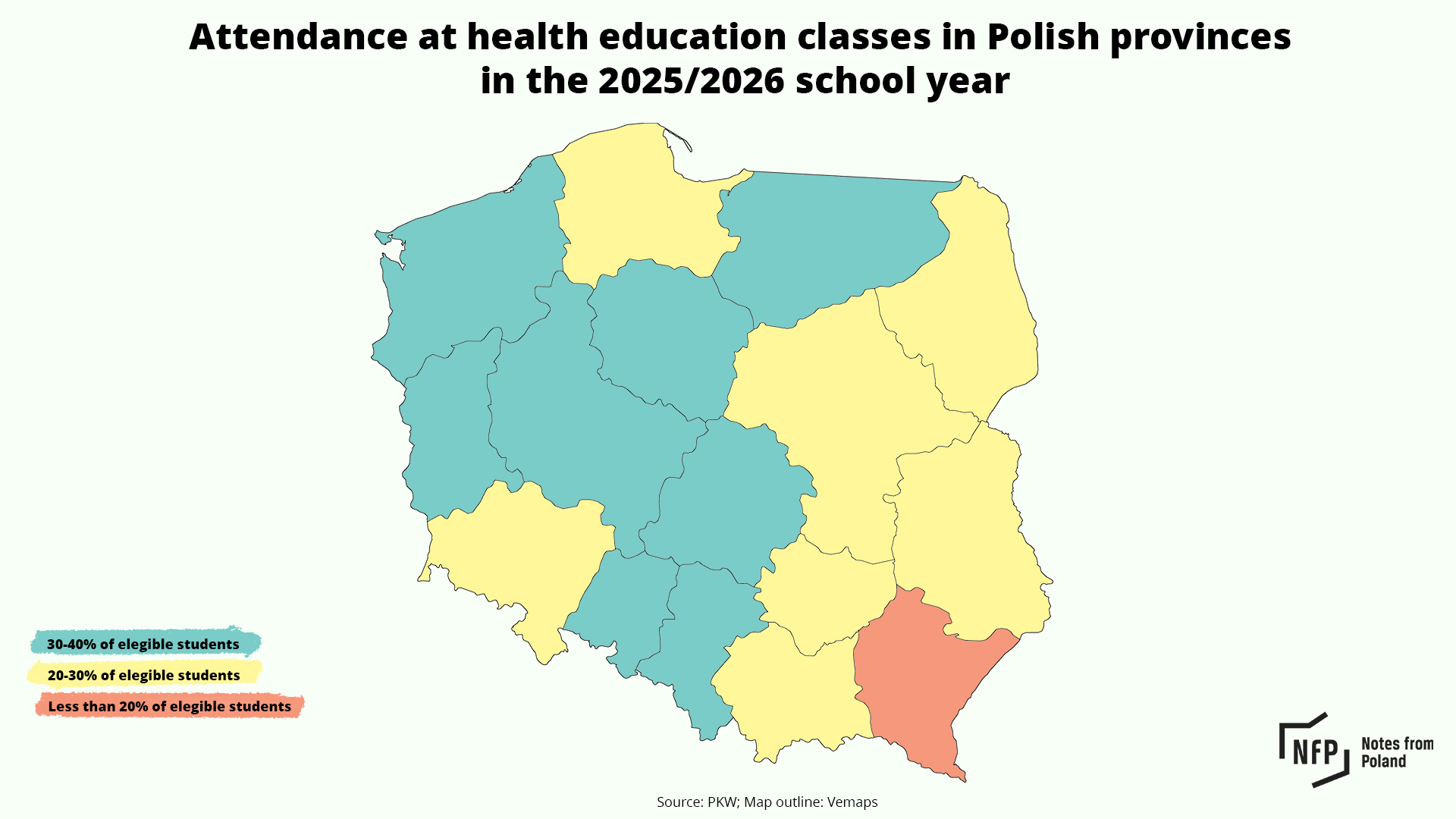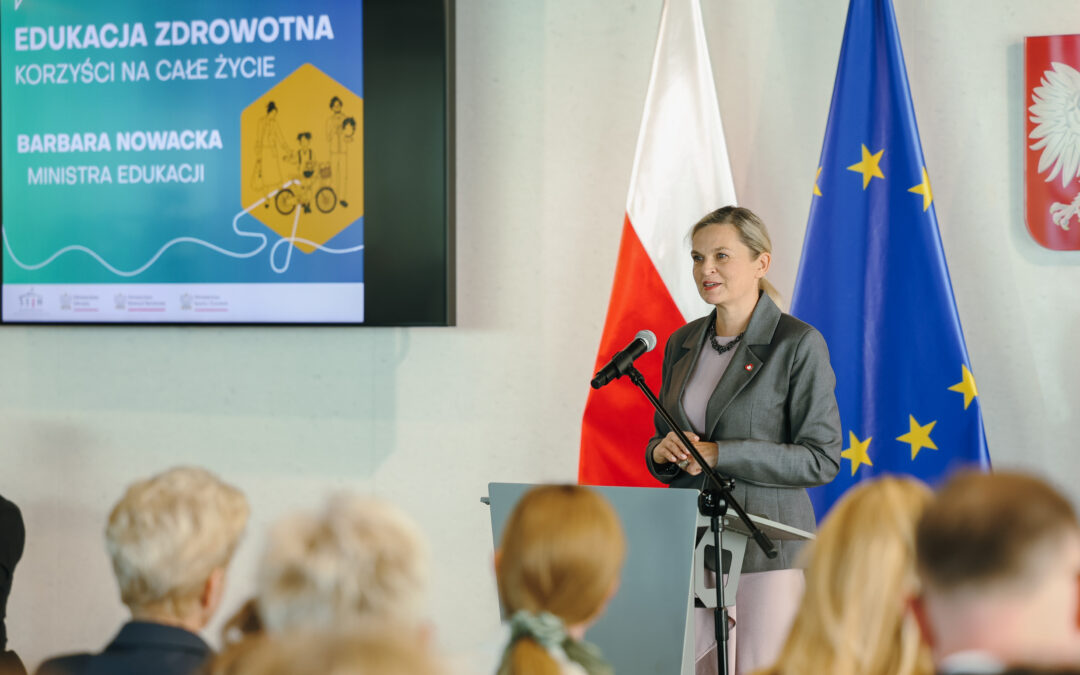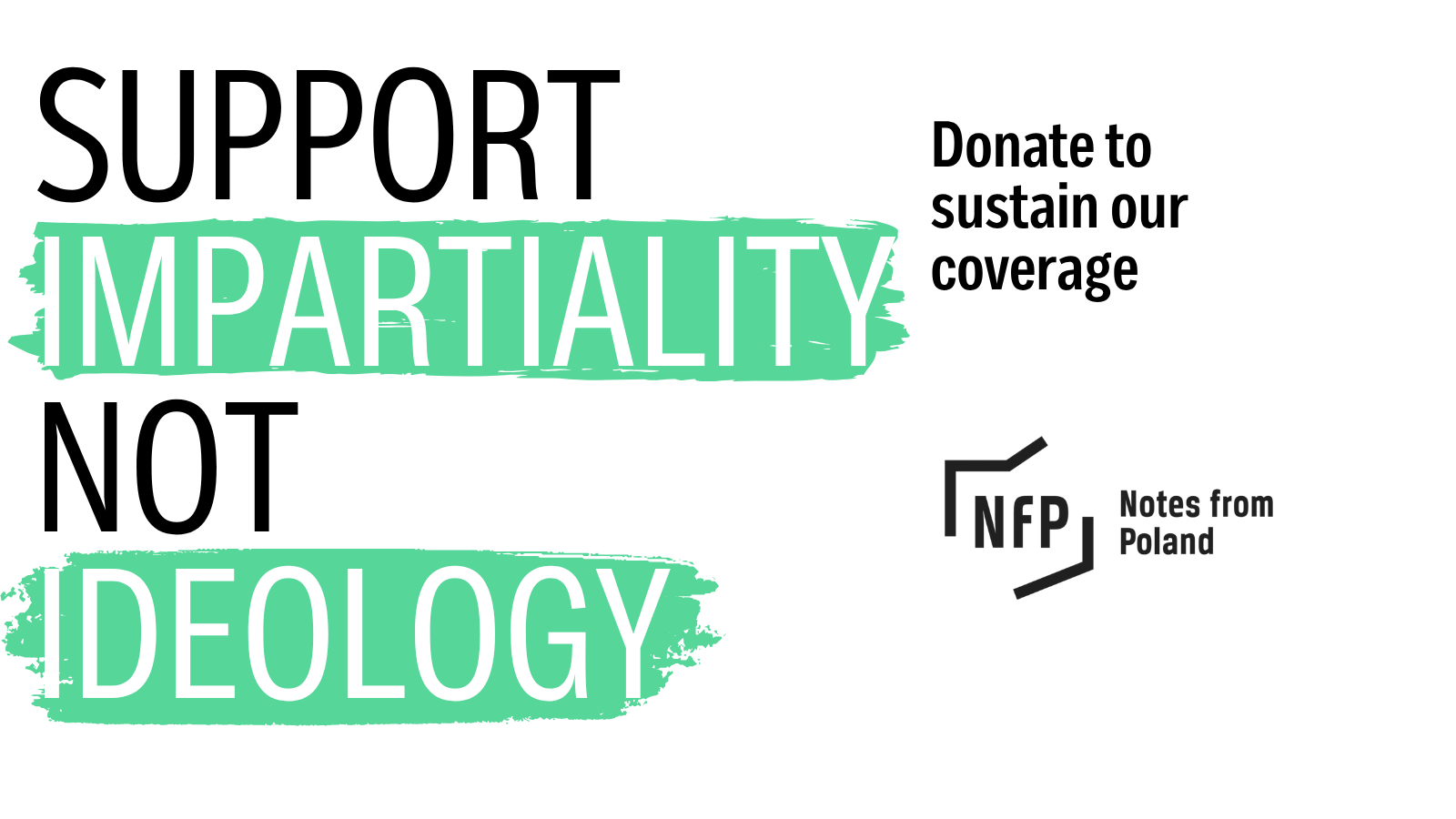Keep our news free from ads and paywalls by making a donation to support our work!

Notes from Poland is run by a small editorial team and is published by an independent, non-profit foundation that is funded through donations from our readers. We cannot do what we do without your support.
Less than a third of pupils have been signed up by their parents to take part in health education, a new optional subject introduced in schools by the government this year.
The classes, which teach children about physical and mental well-being, were initially intended to be compulsory. But the government made them optional following a backlash from the Catholic church and conservative politicians, who criticised elements relating to sex education and gender.
W roku szkolnym 2025/2026 w zajęciach z edukacji zdrowotnej uczestniczy 920 925 uczniów, czyli poniżej 30%. Szkoły podstawowe (40,36%), licea ogólnokształcące (10,08%), w technikach (7,78%), w branżowych szkołach I stopnia (14,40%), szkołach artystycznych (18,33%). Dane MEN. 📢 pic.twitter.com/tfbwmn2hcs
— Paweł Mrozek (@pawel__mrozek) November 13, 2025
Many individual cities and regions have already released data on how many children have signed up for the subject, but on Friday the education ministry released the first full nationwide figures on participation.
They showed that 30% of all eligible pupils had signed up for the classes, which begin in the fourth grade of primary school.
The highest attendance was in primary schools (40.36%). By contrast, it was much lower in general secondary schools (10.08%), technical schools (7.78%), vocational schools (14.40%) and art schools (18.33%).
Attendance is stronger in Poland’s more liberal western provinces – with the highest figures in Wielkopolska (38.59%), Lubusz (38.31%) and Kuyavia-Pomerania (37.26%) – and weaker in the more conservative east, with the lowest figures in Podkarpackie (17.19%), Podlaskie (21.53%) and Lublin (21.72%) provinces.
Among cities, Gorzów Wielkopolski in western Poland reported the highest attendance at 35.66%, while Rzeszów in the east reported the lowest at 14.49%.

However, the subject that health education replaced, called education for family life (WDŻ), which included elements of sex education, was also only attended by a minority of pupils. Indeed, attendance at health education seems higher than it was for WDŻ.
In 2022, attendance of WDŻ in Wrocław, Poland’s third-largest city, was 32% in primary schools and 6% in secondary schools, reported broadcaster TVN at the time. Now, in the same city, 56% of primary school pupils and 8% in secondary schools have signed up for health education, according to Gazeta Wyborcza.
Likewise, in the city of Szczecin, WDŻ classes were attended by roughly 40% of primary school pupils and less than 5% of secondary school pupils in 2022, reported Radio Szczecin. Now, attendance of health education is 56% in primary schools and 11% in secondary schools, according to news website Interia.
The education ministry has appealed to parents to sign their children up for health education, saying that it helps equip young people “with reliable knowledge and practical skills and attitudes that enable them to make informed health decisions and promote a healthy lifestyle”.
However, Poland’s influential Catholic church has expressed opposition to the new subject, claiming that it includes elements that are “anti-family”, “gender destabilising” and will “morally corrupt children”. It appealed to parents not to allow their children to attend.
The right-wing opposition has also criticised health education, including opposition-aligned President Karol Nawrocki. In September, he revealed that he and his wife had decided to opt their teenage son out of the classes, which Nawrocki said “smuggle ideology into schools”.
On Friday, education ministry Barbara Nowacka condemned the “lies and manipulations” about the subject that she said had been spread by the church and right-wing politicians. She reiterated her hope that the subject could in future be made compulsory
Poland's Catholic church has urged parents not to send their children to optional new health education classes in schools.
It says the subject, which includes elements of sex ed, is “anti-family”, “gender destabilising” and will “morally corrupt children” https://t.co/SBEnIGnoJr
— Notes from Poland 🇵🇱 (@notesfrompoland) August 25, 2025
Studies and official data in recent years have pointed to a deterioration in the mental health of children and adolescents in Poland, including a growing number of suicide attempts.
After the ministry published data on attendance of health education, student organisation Akcja Uczniowska renewed calls to make the subject compulsory.
Its founder, high school student Paweł Mrozek, lamented that “health education was politicised from the outset”, not only by the opposition but also by government-aligned presidential candidate Rafał Trzaskowski during his campaign for this year’s election, which he lost to Nawrocki.
“Rafał Trzaskowski and his team decided to go all in to win the votes of conservative voters. Schoolchildren fell victim to this gamble. It is time to take responsibility for this, apologise and roll up our sleeves so that the fate of health education in the new school year is more optimistic, i.e. compulsory,” he said.
UN children's agency @UNICEF warns that "the psychosocial condition of children is deteriorating" in Poland.
It found that 59% of children report feeling happy, down from 75% in 2019. Only 38% say teachers respect their rights, compared to 70% previously https://t.co/9yKLppa5kK
— Notes from Poland 🇵🇱 (@notesfrompoland) February 5, 2025

Notes from Poland is run by a small editorial team and published by an independent, non-profit foundation that is funded through donations from our readers. We cannot do what we do without your support.
Main image credit: MEN (under CC BY-NC-ND 3.0 PL)

Alicja Ptak is deputy editor-in-chief of Notes from Poland and a multimedia journalist. She has written for Clean Energy Wire and The Times, and she hosts her own podcast, The Warsaw Wire, on Poland’s economy and energy sector. She previously worked for Reuters.




















